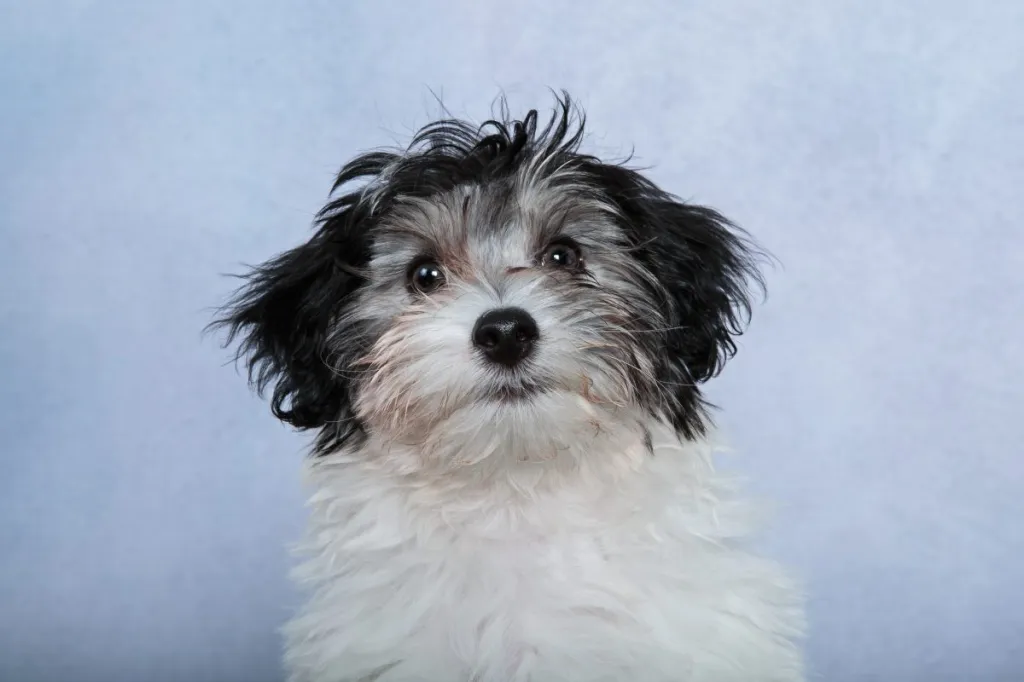Welcome to the wonderful world of the Papipoo, a delightful hybrid dog breed blending the intelligence of the Poodle with the charm of the Papillon. As an animal expert, I’m excited to guide you through everything you need to know about this affectionate companion, from their origins and characteristics to their care and training requirements.
Origins and History of the Papipoo
Understanding the Hybrid Origin
The Papipoo, also known as the Papi-poo or Papidoodle, is a crossbreed between the Poodle and the Papillon. This cross aims to combine the Poodle’s hypoallergenic coat and intelligence with the Papillon’s small size and lively personality.
Rise in Popularity
While hybrid breeds like the Papipoo have gained popularity in recent decades, their exact origin may vary. Dedicated breeders strive to produce healthy, well-rounded dogs with predictable traits that appeal to families seeking a companion with both Poodle and Papillon characteristics.
Characteristics of the Papipoo
Physical Attributes
Papipoos can inherit a variety of physical traits from their parent breeds. They typically have a small to medium build, weighing between 5 to 15 pounds (2.3 to 6.8 kg) and standing around 8 to 12 inches (20 to 30 cm) tall at the shoulder. Their coat can vary in texture and color, often resembling either parent breed.
Temperament and Behavior
Known for their affectionate and playful nature, Papipoos are friendly, outgoing, and eager to please. They enjoy being the center of attention and form strong bonds with their families, making them excellent companions for households of all sizes.
Health Considerations for the Papipoo
Common Health Issues
As with all hybrid dogs, Papipoos may inherit health conditions from their parent breeds. Common concerns include hip dysplasia, patellar luxation, dental issues, and eye problems. Regular veterinary check-ups and a proactive approach to health care are essential for maintaining their well-being.
Responsible Breeding Practices
Responsible breeders prioritize the health and temperament of Papipoos by conducting health screenings and selecting breeding pairs carefully. This helps reduce the risk of hereditary health issues and promotes the overall quality of the breed.
Training and Exercise Needs
Training Requirements
Papipoos are intelligent and eager to please, making them relatively easy to train. They respond well to positive reinforcement techniques such as praise, treats, and playtime. Early socialization and consistent training help ensure they develop into well-behaved companions.
Exercise Regimen
Despite their small size, Papipoos are energetic dogs that require regular exercise to stay physically and mentally stimulated. Daily walks, play sessions, and interactive toys help satisfy their need for activity and prevent boredom-related behaviors.
Living with a Papipoo
Suitable Living Environments
Papipoos adapt well to various living situations, including apartments and houses with small yards. They thrive on companionship and enjoy being part of family activities, making them ideal pets for individuals, couples, or families with older children.
Grooming and Care
Papipoos may inherit a coat that requires regular grooming to maintain its condition and prevent matting. Depending on coat type, they may need brushing a few times a week, occasional baths, nail trimming, and dental care to ensure overall hygiene.
The Papipoo in Society
Roles and Activities
Papipoos excel as loving companions and may participate in activities such as obedience training, agility courses, or therapy work. Their intelligence and affectionate nature make them adaptable to various roles and environments.
Legal Considerations and Ownership Responsibilities
Ownership of Papipoos is straightforward, but it’s important for owners to comply with local regulations regarding pet ownership, licensing, and responsible pet care practices. This includes regular veterinary care, proper nutrition, and providing a safe environment for their Papipoo.
Conclusion: Embracing the Papipoo
In conclusion, the Papipoo is not just a blend of two popular breeds—it’s a charming, affectionate companion that brings joy and laughter to any household. Whether you’re drawn to their intelligence, their playful demeanor, or their hypoallergenic coat, owning a Papipoo is a rewarding experience for those who appreciate their unique qualities.
What is the temperament of a Papipoo dog?
Papipoos are known for their affectionate and playful temperament. They are typically friendly, outgoing, and enjoy being around their family members. They often inherit intelligence from their Poodle parent and lively energy from their Papillon parent, making them delightful companions.
How long do Papipoos live?
On average, Papipoos have a lifespan of around 12 to 15 years. Providing proper veterinary care, a balanced diet, regular exercise, and a loving environment can contribute to their longevity and overall well-being.
What is the personality of a Papipoo?
The personality of a Papipoo is often described as loving, lively, and loyal. They are known for their playful nature and enjoy interacting with their family members. Papipoos can be affectionate cuddlers while also being alert and responsive to their surroundings.
What is a full-grown Papipoo?
A full-grown Papipoo typically ranges in size depending on their parent breeds, with most weighing between 5 to 15 pounds (2.3 to 6.8 kg) and standing around 8 to 12 inches (20 to 30 cm) tall at the shoulder. They maintain a compact and sturdy build, reflecting their small to medium size.
- Best Hunter.io Alternatives for 2025 - April 19, 2025
- Best Lead411 Alternatives for 2025 - April 19, 2025
- Best Leadzai Alternatives for 2025 - April 18, 2025



